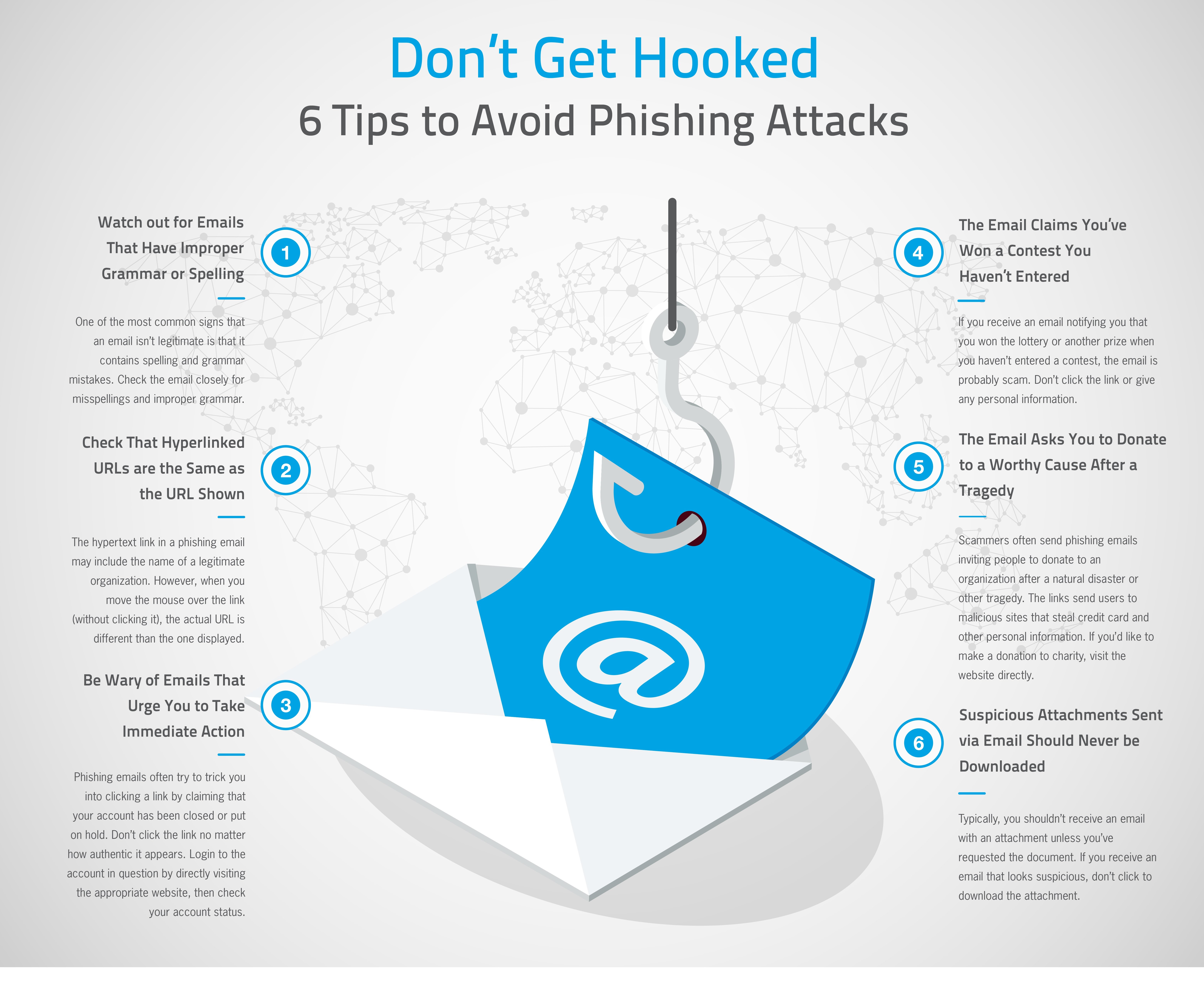Don't Get Hooked | 6 Tips to Avoid Phishing Attacks
Phishing is a scam used by identity thieves to trick you into providing your sensitive personal or financial information. Scammers use official-looking emails to impersonate trusted entities like banks, credit card companies, and online resources. These emails are used to lure unsuspecting people to a particular website through a link where they will be asked to enter their information. Phishing scams continue to be successful enough for cyber criminals to make profits, so it's important that you know the tactics scammers use so you don't become hooked by a phishing scam. Here are 6 tips to avoid phishing attacks.
1. Watch out for Emails That Have Improper Grammar or Spelling
One of the most common signs that an email isn’t legitimate is that it contains spelling and grammar
mistakes. Check the email closely for misspellings and improper grammar.
[You Might Also Like: Blog Article - "How to Prevent Common Cyber Attacks"]
2. Check That Hyperlinked URLs are the Same as the URL Shown
The hypertext link in a phishing email may include the name of a legitimate organization. However, when you move the mouse over the link (without clicking it), the actual URL is different than the one displayed.
3. Be Wary of Emails That Urge You to Take Immediate Action
Phishing emails often try to trick you into clicking a link by claiming that your account has been closed or put on hold. Don’t click the link no matter how authentic it appears. Login to the account in question by directly visiting the appropriate website, then check your account status.
[You Might Also Like: Blog Article - "5 Common Types of Malware"]
4. The Email Claims You’ve Won a Contest You Haven’t Entered
If you receive an email notifying you that you won the lottery or another prize when you haven’t entered a contest, the email is probably scam. Don’t click the link or give any personal information.
[You Might Also Like: Blog Article - "10 Ways to Protect Your Computers From Malware"]
5. The Email Asks You to Donate to a Worthy Cause After a Tragedy
Scammers often send phishing emails inviting people to donate to an organization after a natural disaster or other tragedy. The links send users to malicious sites that steal credit card and other personal information. If you’d like to make a donation to charity, visit the website directly.
[You Might Also Like: Blog Article - "Layered Security Key to SMB Cyber Protection"]
6. Suspicious Attachments Sent via Email Should Never be Downloaded
Typically, you shouldn’t receive an email with an attachment unless you’ve requested the document. If you receive an email that looks suspicious, don’t click to download the attachment.

